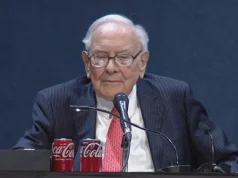As our nation honors veterans during ‘Invest in Veteran Week’, we at The Work Times are prompted to explore a paramount issue at the intersection of employment and societal enrichment: the civilian-military employment gap. This article critically examines the benefits and undercurrent challenges associated with investing in veterans, providing an insightful lens into the potential of this unique workforce segment.
Veterans bring a wealth of attributes to the civilian workforce: proven leadership skills, experience in diverse and challenging environments, and a commitment to excellence that extends beyond the uniform. Yet, despite these attributes, many veterans face significant obstacles when transitioning to civilian employment. It’s time to ask: what more can the private sector do to harness the untapped potential of veterans?
To answer this, we ventured into the trenches of veteran employment, interviewing those at the heart of the issue. Among our conversations was Alex Morgan, a former Navy SEAL who has transitioned to become a leading tech entrepreneur. Alex’s journey exemplifies how military skills are translatable to business success, and he now advocates for greater veteran representation in the tech industry.
We also spoke with Samantha Lee, a Human Resources Director at a Fortune 500 company, who’s at the forefront of implementing veteran hiring programs. She shared the challenges and triumphs of their ‘Vets at Work’ initiative, designed to translate military experience into corporate success.
But it’s not just about getting veterans through the door. Policymaker Jordan Fisher weighed in on the systemic barriers hindering veterans from seamless reintegration. ‘Legislation must evolve to incentivize veteran employment and support businesses in this journey,’ Fisher emphasized.
So, what’s the return on investment for businesses that engage in this mission? Data suggests that veteran hires not only increase workforce diversity but also bring unique perspectives that can boost creativity and problem-solving. Yet, many employers still wrestle with misconceptions about the adaptability and civilian readiness of veterans.
To debunk these myths and propose actionable strategies, we will outline how companies can create veteran-friendly workspaces. This includes recognizing the value of military experience, providing mentorship programs, and fostering a corporate culture that celebrates the service and skills of veterans.
The private sector’s investment in veterans is more than a social good; it’s a strategic business advantage. As The Work Times, we believe that bridishing the civilian-military employment gap can strengthen our economy and society.
Business leaders, it’s time to take action. Let’s commit to empowering this remarkable segment of our workforce—our veterans deserve no less, and our businesses will be all the richer for it.



























